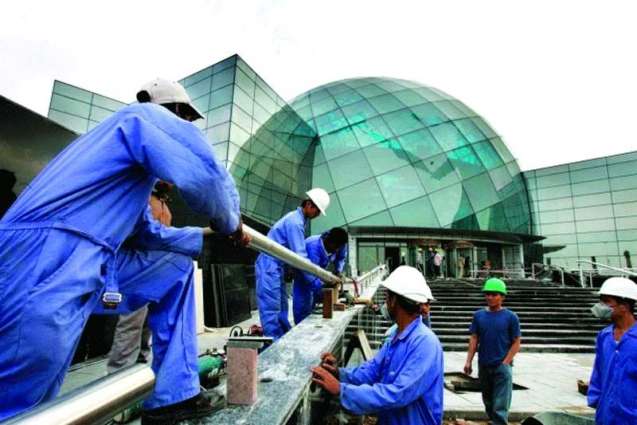The working conditions and expectations placed on some employers are not only unrealistic, they are harmful to people’s health
DUBAI, (Pakistan Point News - 12th Feb, 2019) The working conditions and expectations placed on some employers are not only unrealistic, they are harmful to people’s health.
This was the prevailing sentiment of a plenary address delivered today at the seventh World Government Summit by the Director General of the International Labor Organization, Guy Ryder, where His Highness Sheikh Mohammed bin Rashid Al Maktoum, Vice President and Prime Minister of the UAE, and Ruler of Dubai, was present to hear his thoughts on how to create a more productive and salubrious working environment.
Ryder’s address was give under the title "Work For a Brighter Future". Speaking in the main hall at the annual event that brings together the world’s leading policymakers, Ryder said: "We must put in place systems to make the possibility of skilling, upskilling and reskilling a consistent part of working life for us all. We need to invest much more in our social protection systems.
"This would protect people’s fundamental rights at work. It would prescribe an adequate living wage for all. Set maximum working hours and make safety and health at work a human right, when we know that every year, 2.7 million people lose their lives in the world because of the work they do."
Later in the day, a panel discussion took on the same topics raised by Ryder in his plenary address. The Future of Jobs Forum, in partnership with the ILO, discussed the troubling paradox that while emerging technologies are creating new types of jobs, they are also making others redundant.
Given this scenario, governments are giving top priority to skill development and migration policies to ensure that their labor markets are up to speed to keep pace with the evolving demands. Under the theme ‘Planning for the Next Generation of Careers’, the Forum shed light on the two effective policy levers – skill development and migration – available to governments amid the current market demands and examined how they can navigate these challenges to meet a future that is far from certain.
In his keynote address to the panel, Nasser Al Hamli, UAE Minister of Human Resources & Emiratisation, said: "There is a massive shift happening with the rapid economic development. With new technologies and new methodologies, the need for skill training is ever growing. As the fifth most popular migrant destination, the UAE also offers a latent market that attracts overseas skilled manpower. We need to understand how we can keep moving without leaving anyone behind."
The keynote was followed by a panel discussion, which was moderated by Riad Hamade, Executive Editor at Bloomberg.
In his comments, Jan-Emmanuel De Neve, Associate Professor of Economics and Strategy at Saïd business school, University of Oxford, said: "While quantitatively we should not be concerned about the job situation, the qualitative aspects are unnerving. Research has shown that there will be a strong skill polarization in the future. Automation and digitalization will put a greater premium on people with high skills."
Sayed Zulfikar Abbas Bukhari, Minister of State and Special Assistant to Prime Minister on Overseas Pakistanis and HRD - Islamic Republic of Pakistan, said: "The definition of demand on employment is changing. There is this fear that we will not be able to reskill quickly enough. In Pakistan, we are committed to setting up centers to train and reskill Pakistanis at par with global standards. We are learning from other countries and developing the requisite skills among our nationals to fit market demands in other geographies."
Haifa Al Kaylani, Founder and Chairman, Arab International Women’s Forum, said: "Removing the mismatch between skills and employment is important and building the skills for the future is a multi-stakeholder process. Governments need to take the lead and prepare the framework to leverage the opportunities in emerging sectors."
For his part, Khalid Koser, Executive Director, Global Community Engagement and Resilience Fund, said: "Migrants are often the most entrepreneurial and dynamic members of society. Historically, migration has reinforced economic growth, nation-building and enriched cultures. While a lot has been spoken about upskilling and promoting migrant workforce, we have to guard against brain-drain. It is well known that most migrants in Europe are not in occupations commensurate with their skills."
The three-day World Government Summit 2019 runs until February 12 at Madinat Jumeirah in Dubai. The landmark event has convened more than 4,000 participants from 140 countries, including heads of state and governments, as well as top-tier representatives of 30 international organizations.




